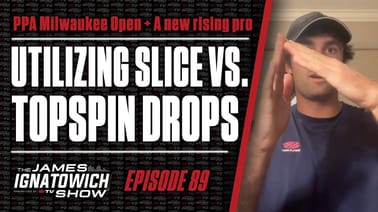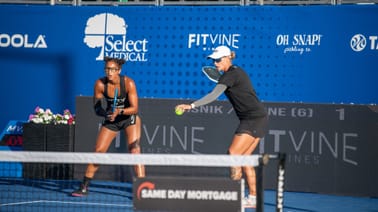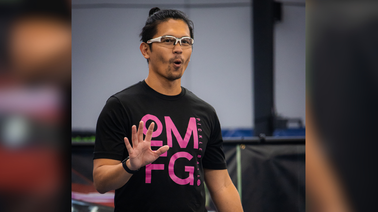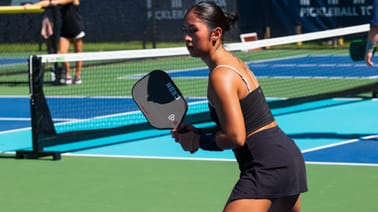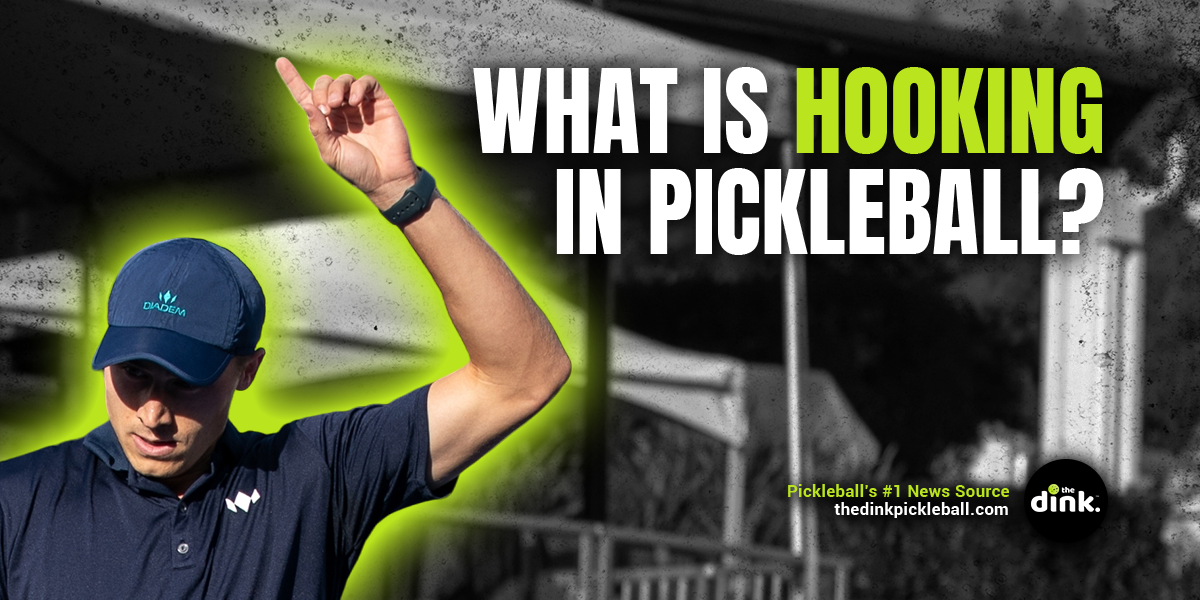
It’s not what you think it is.
Though, as expensive as some of these pickleball paddles are becoming, maybe…
Now that all of our minds are completely in the gutter, let’s discuss a hot topic in pickleball.
Hooking.
What is hooking?
In pickleball, hooking means purposely making a bad line call against your opponent. While most players would say they would never (in a million years) purposely make a bad call just to give themselves an advantage, it happens fairly often – even at the pro level.
The most common moments for hooking your opponent are when a game is close or near its end. In other words, when it matters the most. For some reason, when we get to these moments, we "see" things differently than we might have early on in the match.
Whether this is because of competitiveness or because a player is purposely taking advantage of our sport's silly rule on self-refereeing is up for interpretation.
Why hooking matters
In rec games, hooking your opponent matters because you’re taking a rally or point away that you otherwise wouldn't have won. It could win or lose you a game, but at most, it'll just cost you some credibility among your pickleball group.
So hooking matters less in games that are just for fun.
In the professional version of our sport, hooking is a big deal.
These players are making hundreds of thousands of dollars per year (at least one is making over $2.5 million), and with pro pickleball dabbling in the gambling space, losing a point or two in a match can cost a lot.
Could you imagine if John McEnroe was allowed to make his own line calls during his career?
Or what if pitchers in Major League Baseball called their own balls and strikes?
The fact that players make their own line calls in a professional sport is wild and we're probably lucky that more hooking isn't happening.
Why pickleball players hook
Ultimately, we all want to be known as fair players who would never stoop so low as to make a purposely bad line call.
We even have some poll results from earlier this year to prove it:
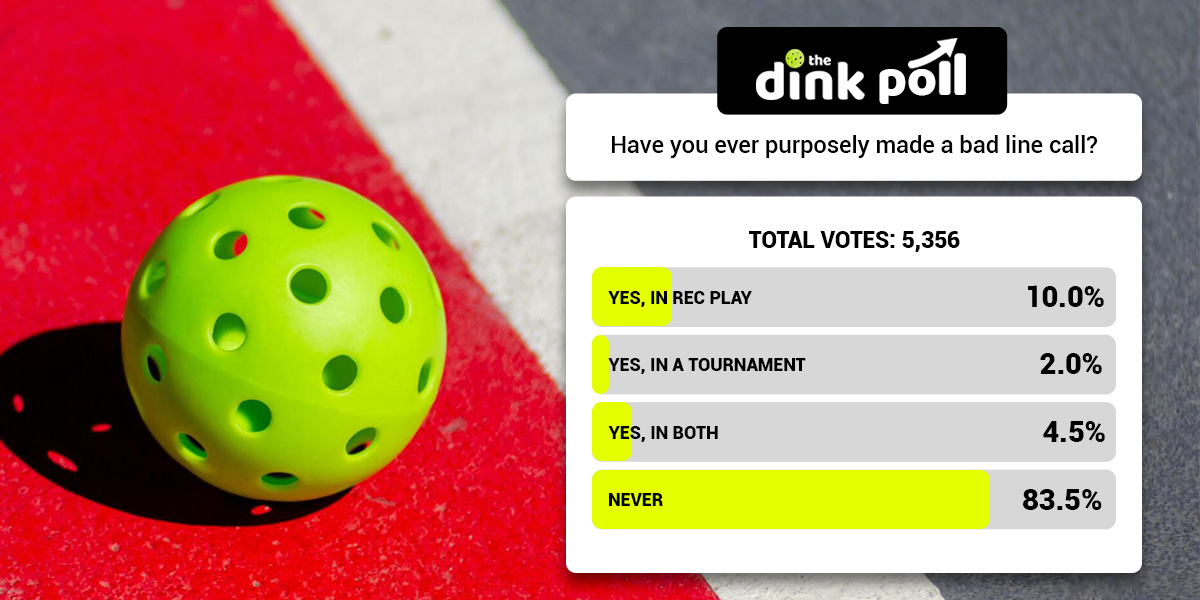
However, we have to admit that sometimes, we see what we want to see.
When the competitive juices are flowing, it's hard to be impartial. And, if we're on the move when chasing a ball with our eyes bouncing up and down, that makes seeing the ball incorrectly even more likely.
If it's a mistake, no worries. We all do it.
However, if you're someone who regularly leans toward "the ball was out" when it was actually only "kind of, sort of, maybe" out, then you might be a hooker.
Hmm. Maybe we need a new name for this...
Should hooking be punished
Currently, whether in the pros or at your daily paddle stack, there are no punishments for making bad line calls.
Players get frustrated, roll their eyes, and maybe make a note to get you back the first chance they get, but ultimately, play continues.
Of course, in the pros, they have instant replay. However, it's proven to not be the greatest quality in the world and rarely shows a definitive answer one way or the other.
Perhaps someday there will be a punishment for hooking (e.g., a lost point or forfeiture), but right now, players have no real consequences for making a wrong call. So, it's hard to blame them for being a bit biased.
What pros have to say about it
Most pros will agree they shouldn’t be responsible for line calls. But, since they are, some pro players have earned a bad reputation for it.
One player that’s universally criticized for making bad line calls is Salome Devidze. They’ve even begun doubling or tripling the number of referees on the court whenever she plays a big match.
As you can see in this gold-medal match versus Parris Todd:
On a recent PicklePod episode with pro Travis Rettenmaier, he called out two pros – Tyler Loong and Christian Alshon – saying, "Those guys have hooked me terrible."
This, of course, led Loong to defend himself on his own podcast, King of the Court:
While all of this can be very entertaining and a little fun to talk about, it's definitely a part of our game that needs to be fixed. So, let's discuss some ways we can all hook less in pickleball.
How to hook less
If you're concerned about earning a poor reputation as someone who hooks, then this section of the article is for you. Here are some tips to consider when deciding whether to make an out call.
If you don’t see it out, it’s not out
In most tournaments, there’s a rule for calling out balls, “If you don’t see that it’s out, then it’s not out.” Sounds silly, but there are times when we see a ball and "think" it was out.
If you follow this as your golden rule for making out calls, then anytime you "think" a ball was out, then it's actually in. So, don't call it out.
Unless you are 100 percent certain a ball was out, then play it as though it was in and challenge yourself to keep the point going.
Be a good sport first
We’re all competitive, and that’s one of the reasons we love sports. However, being too competitive in rec games can turn a fun time into an awful one. If a line call looks close, lean on the side of it being in, even if you can't get to it.
No one ever got mad at someone for being too good of a sport.
However, there are plenty of pickleballers out there that no one likes playing with because they zap all the fun out of the sport. Don't let this happen to you. Be a good sport first, and a competitive jerk never.
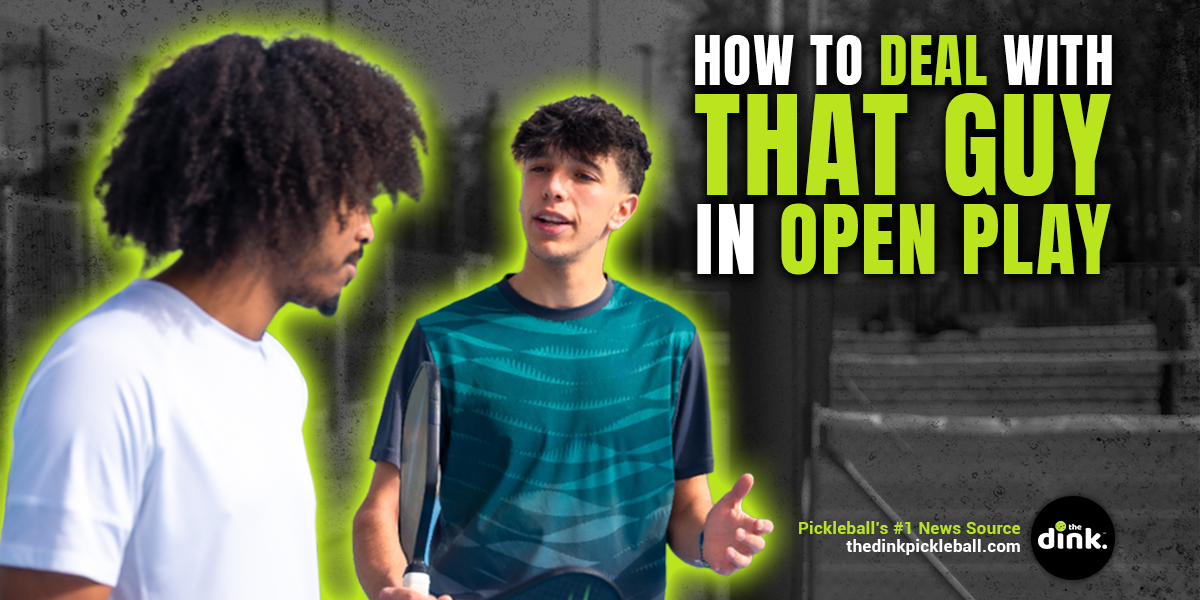
Be willing to replay a point
At a standstill or just unsure? If your opponent is visibly bothered by your call and you start to question it yourself, why not just replay the point? Most would agree to this compromise, especially if it avoids potential hurt feelings or conflict.
Plus, you get extra pickleball out of it.
That's a win-win.
How to hook more and get away with it
Of course, there's another side to this, and that's what this section is about. If the idea of not following a rule to the letter of the law just won’t let you sleep at night, then here are some ways you can hook more and get away with it.
Be confident and move on
You can almost always tell when someone questions their call – there’s a look. We’ve all seen it.
A way to avoid giving that look, even if you know in your heart of hearts that you just made one of the worst line calls in pickleball history, is to confidently yell "out" and firmly walk back to your starting position.
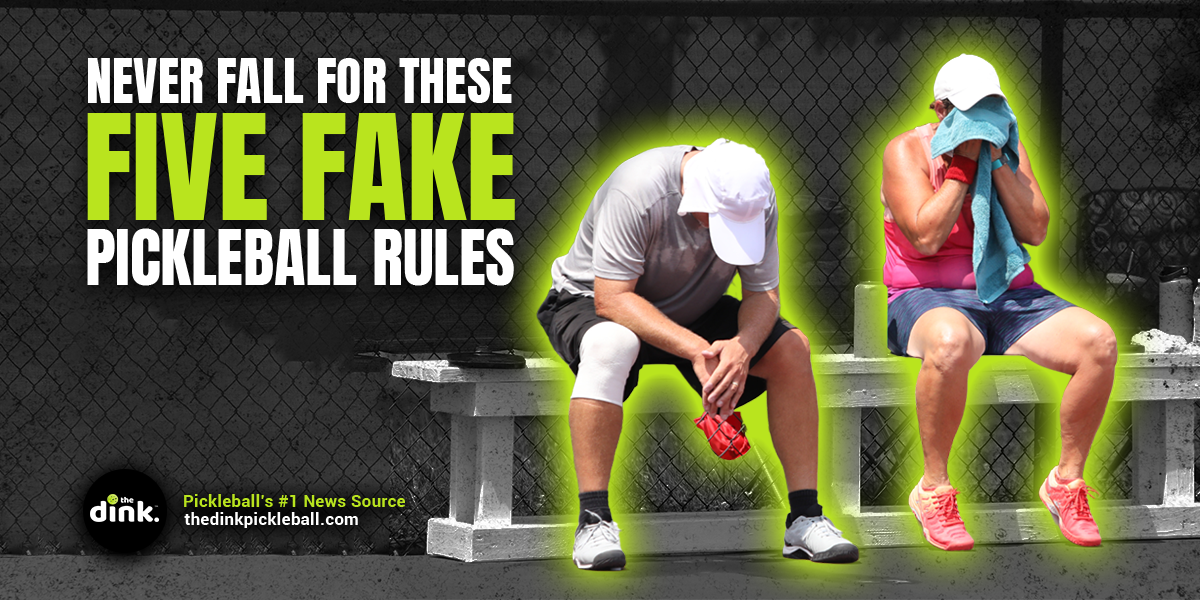
Also, avoid eye contact at all costs.
Moving on as though it was the most obvious out call in the world is the ultimate power play. Let them keep staring daggers into the back of your head.
It was still out.
Be generous early, so you can hook late
When you can make a close call early in the match, call it "in" for your opponent. Even if they disagree, be adamant that you saw it in and let them have the point. This will earn you some brownie points, allowing you to hook them later and be more believable.
Just make sure it's when it matters the most so that it really sticks it to them.
Get your partner to agree
There is power in numbers. If you have a good partner, they should back you up even when they know you're wrong. After all, they gain from the hook, too. If they override you, apologize for the missed call and make plans to replace your partner immediately.
You could even keep a tally of calls they cost you and hook them (when they play against you) for those points in the future.
To hook or not to hook?
Of course, the last section of this article has been all in good fun. We believe hooking in pickleball should never happen. Ever.
At least, we know we would never do it.
Unless it really mattered. Then, it was definitely an out ball.




